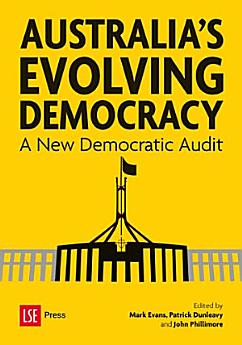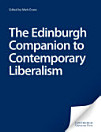Australia’s Evolving Democracy: A New Democratic Audit
About this ebook
In Australia’s Evolving Democracy a team of leading academic authors use an audit approach to critically explore national government institutions, as well as state- and territory-level politics, and to examine how each has contributed to or held back Australian political life as it has changed and diversified. For instance, the top two parties’ monopoly of governance has only begun to adjust to a modern transition to multi-party politics, although balanced voting systems for two-house legislatures have allowed for some adaptation. To date, the country has successfully avoided both rancorous populist politics (as in the USA) and serious governance decline (as in the UK).
Each of the book’s 28 chapters tackles one institution or issue, outlining recent developments along with an analysis of strengths, weaknesses, opportunities and threats, to fully evaluate the state of Australian democracy in the 21st century. In doing so, the authors draw key lessons for other democracies, showing in detail how robust major and micro-institutions can guard against democratic ‘backsliding’ and policy failures.
This comprehensive audit also highlights scope for potential democratic improvements. Australia continues to confront the challenges of partisan political barriers to addressing climate change and improving the situation of First Nations peoples, redressing modern social inequalities, and responding to popular mistrust of government and politicians.
By taking an in-depth, nuanced approach to multiple democratic issues across the whole of the country’s distinctive political system, this book provides analysis that is accessible for students new to Australian politics, along with many insights for political scientists studying comparative democratic politics and Australian institutions.
About the author
Mark Evans (FIPPA, FRS) is Deputy Vice Chancellor Research at Charles Sturt University and was formerly Director of Democracy 2025 at the Museum of Australian Democracy in Canberra from 2018 to 2022. Prior to this, he was Executive Director of the Institute for Governance and Policy Analysis at the University of Canberra (2009–18) and editor of the international journal Policy Studies (2004 to 2021). His research focuses on evaluating domestic and international evidence on how to improve democratic governance and practice. His most recent books include Saving Democracy (Bloomsbury Press, 2022, co-authored with Gerry Stoker) and From Turnbull to Morrison: The Trust Divide (Melbourne University Press, 2019, with Michelle Grattan and Brendan McCaffrie).
Patrick Dunleavy is Emeritus Professor of Political Science and Public Policy at the London School of Economics and Political Science (LSE). He worked in the Department of Government at LSE from 1979 to 2020. He is also Emeritus Professor of Government at the University of Canberra, where he was Centenary Professor 2015–2020. A Fellow of the British Academy and the Academy of Social Sciences, he also served as founding editor-in-chief at LSE Press from 2020–2023. He was director of the UK Democratic Audit from 2013 to 2020. His recent books include The UK’s Changing Democracy: The 2018 Democratic Audit (open access from LSE Press, 2018, co-edited) and Maximizing the Impacts of Academic Research (Palgrave, now Bloomsbury Press, 2021, co-authored with Jane Tinkler). [email protected]
John Phillimore is Executive Director of the John Curtin Institute of Public Policy at Curtin University, Western Australia. He has written widely on federalism, public policy and public administration, and is a regular commentator on Australian and Western Australian politics. In 2021 Professor Phillimore was appointed to the Ministerial Expert Committee on Electoral Reform in Western Australia. Its recommendations led to the reform of the state’s voting system for the Legislative Council. [email protected]





